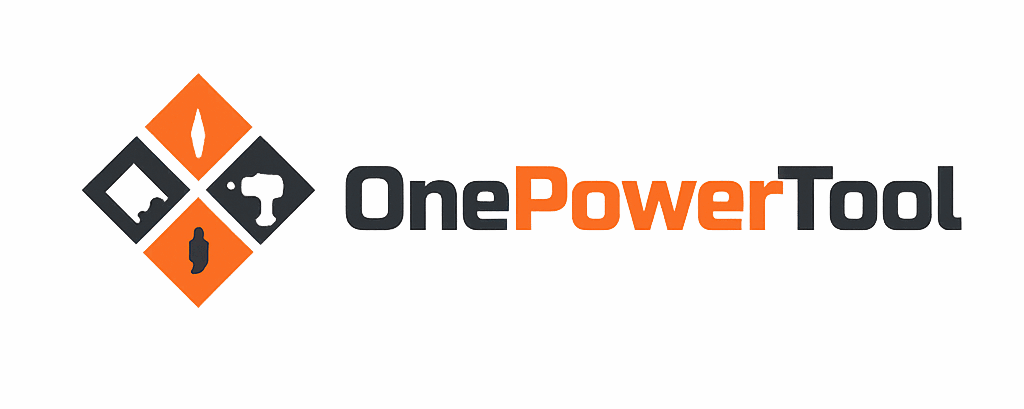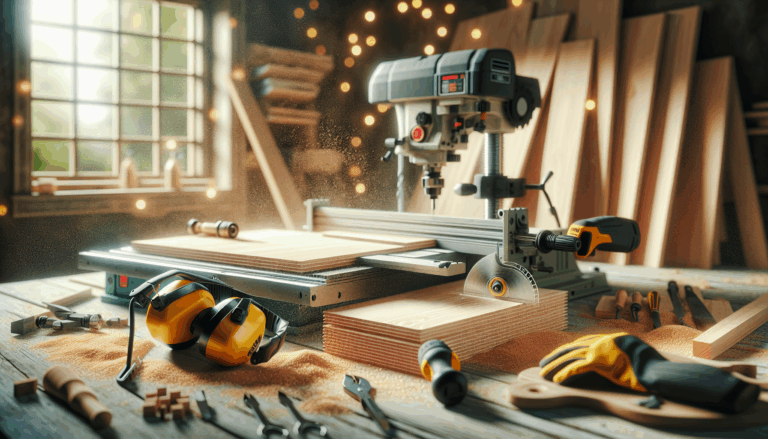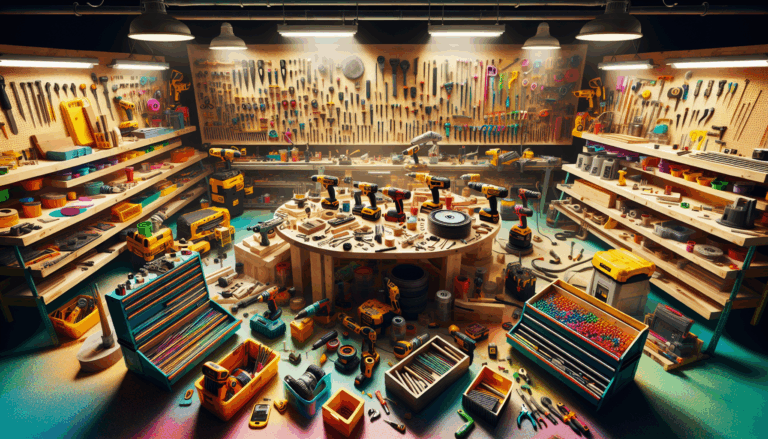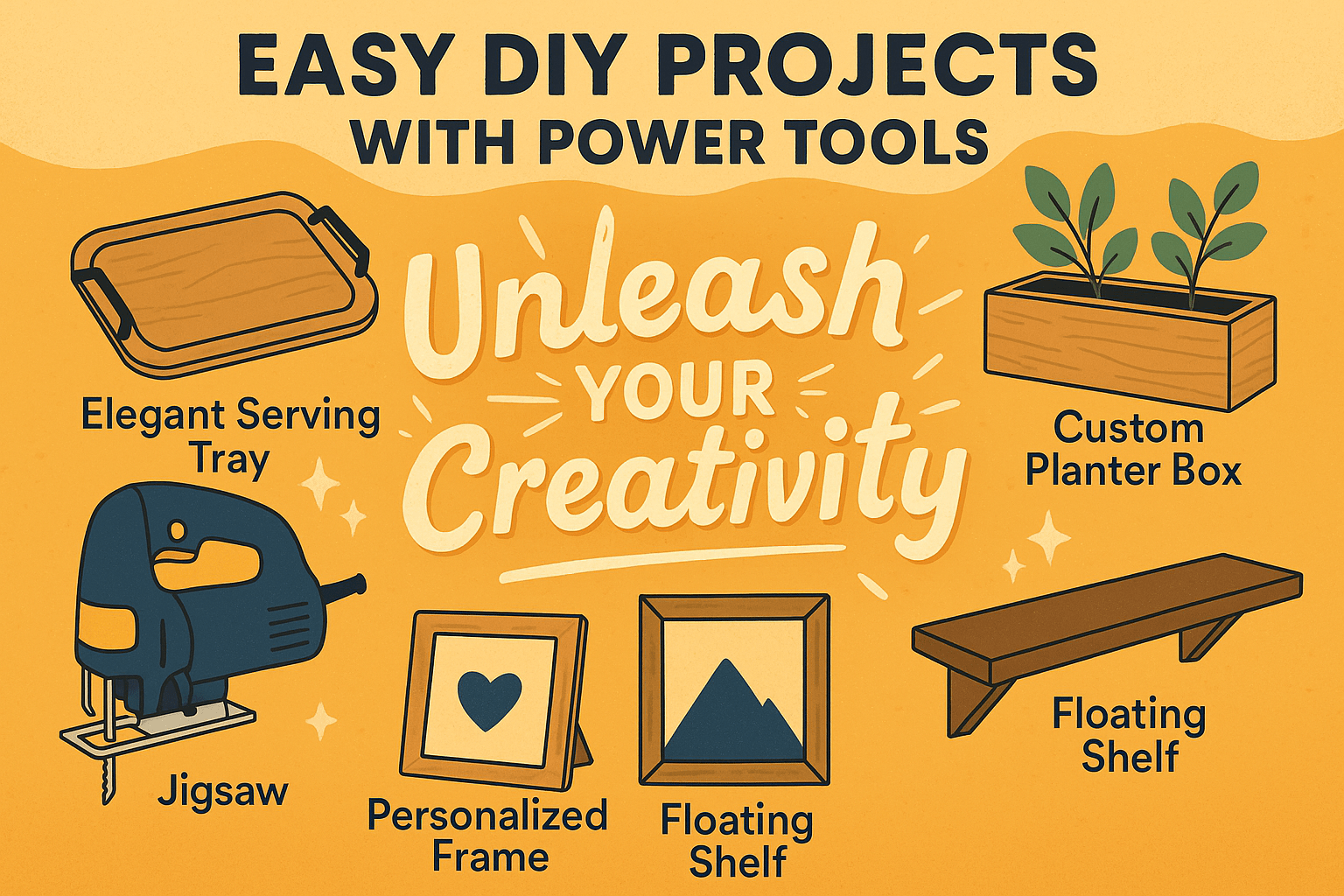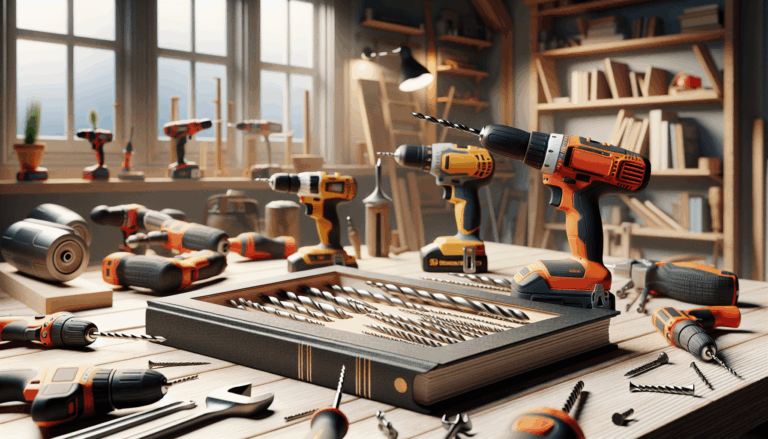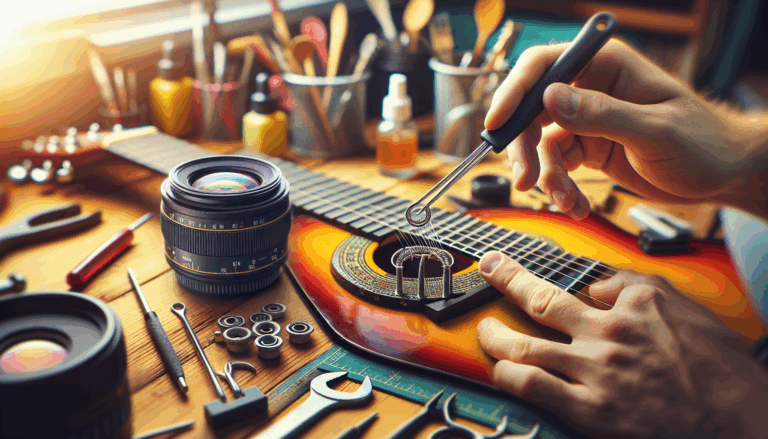What are some DIY projects using power tools for science experiments?
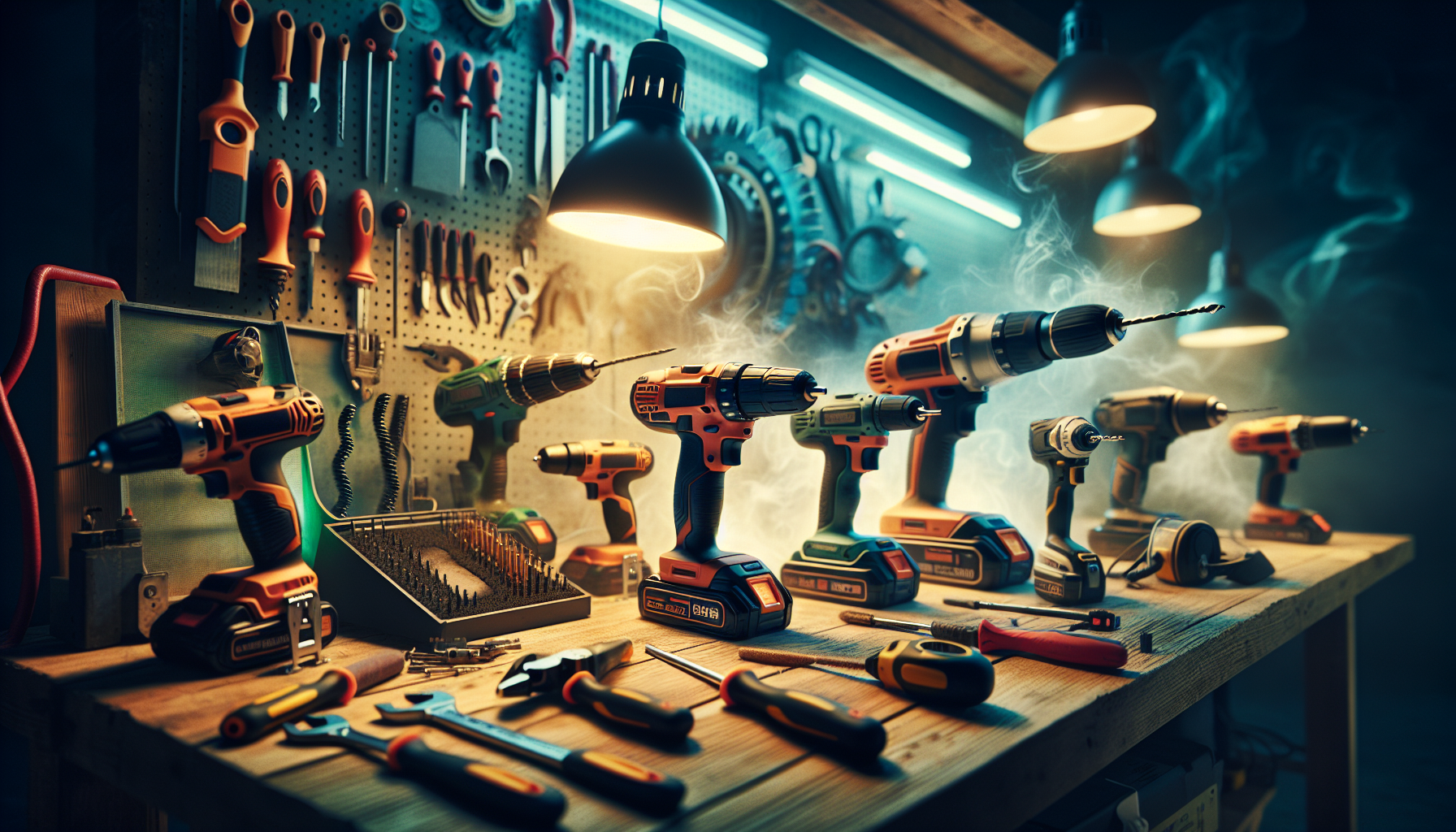
The Science of Batteries: Understanding Power Tool Energy Sources
Power tools have advanced significantly in recent years, primarily due to innovations in battery technology. The most common type of battery used in modern power tools is the lithium-ion battery. These batteries are favored for their high energy density, lightweight design, and the ability to hold a charge longer compared to older battery types such as nickel-cadmium (NiCd) or nickel-metal hydride (NiMH) batteries. This makes lithium-ion batteries particularly suitable for DIY projects, where mobility and ease of use are crucial.
Lithium-ion batteries work by moving lithium ions from the negative electrode to the positive electrode during discharge and vice versa during charging. This mechanism allows for efficient energy transfer and minimal self-discharge, which is important for tools that may sit unused for extended periods [Source: U.S. Department of Energy].
In addition to lithium-ion, some power tools still use NiCd and NiMH batteries, each having its own advantages. NiCd batteries are robust and can perform in extreme temperatures, but they suffer from a memory effect, which reduces their overall lifespan. NiMH batteries, while better than NiCd in terms of environmental impact and self-discharge rates, still don’t match the performance characteristics of lithium-ion batteries [Source: The Balance].
Understanding these battery technologies is essential for selecting the right tool for your DIY projects. Optimal battery performance can dramatically influence efficiency and outcomes in tasks ranging from simple repairs to complex builds. To explore more about power tools and best practices, check out our article on Power Tool Batteries and how to select the right tools for various projects.
Ensure a Perfect Fit: Choosing and Changing Power Tool Blades
When selecting and changing power tool blades, it’s essential to follow a systematic approach to ensure optimal performance for your DIY tasks.
Selecting the Right Blade
- Type of Material: Determine the material you’ll be working with (wood, metal, or plastic). For instance, wood blades often have fewer teeth for faster cutting, while metal blades have more teeth for finer cuts. Selecting the correct blade type prevents damage to both the blade and the material. [Source: One Power Tool]
- Blade Size: Check the diameter and thickness of the blade. Ensure it’s compatible with your power tool. The diameter usually dictates the depth of cut while thickness can affect durability. [Source: One Power Tool]
- Teeth Configuration: The number of teeth on the blade impacts its cutting ability. For rough cuts, choose lower teeth count; for finishing cuts, a higher count is preferable to achieve smoother finishes. [Source: One Power Tool]
Changing the Blade
- Safety First: Always disconnect the power tool from the power source before changing blades. Wear safety gloves to protect your hands from sharp edges. [Source: One Power Tool]
- Proper Tools: Use the manufacturer-recommended tools to loosen and tighten the blade. Most power tools come with an allen wrench or spanner. [Source: One Power Tool]
- Aligning the Blade: Ensure the new blade is properly aligned and tight before reassembling the tool. Misalignment can lead to poor cuts and increased wear on the blade and tool. [Source: One Power Tool]
Regular maintenance, including cleaning the blades and storing them properly, can significantly enhance their lifespan and performance. For more detailed guidelines, refer to our articles on best practices to avoid stripping screw heads with power tools or safely removing a stripped screw.
Choosing the Perfect Power Tool for DIY Projects
When selecting power tools for DIY projects, it’s essential to consider the specific tasks at hand to maximize effectiveness. Here’s a detailed guide to help you choose the right tools based on common project categories:
- Woodworking Projects: For tasks such as cutting, sanding, and drilling into wood, a combination of a circular saw for straight cuts, a jigsaw for curves, and an electric sander is recommended. A quality hand drill is vital for making holes and driving screws. A good electric hand drill should have adjustable speed settings for versatility.
- Home Improvement and Renovation: Projects may include drywall installation, floor tiling, or furniture assembly. A rotary hammer drill is advantageous for masonry, while a nail gun can expedite framing and finish carpentry tasks. For more extensive renovations, consider a power miter saw to ensure precise angle cuts.
- Gardening and Outdoor Projects: For outdoor work, electric or gas-powered tools such as string trimmers and leaf blowers effectively manage landscaping. Additionally, a cordless hedge trimmer offers the convenience of mobility without the hassle of extension cords.
- Automotive Projects: If you’re working on vehicles, tools like impact wrenches for loosening bolts quickly and cordless ratchets can significantly speed up repairs. Make sure to have a set of quality screwdrivers and pliers specific to automotive tasks.
- Safety Precautions: Always prioritize safety by using personal protective equipment (PPE) such as safety glasses and gloves. Familiarize yourself with tool guidelines and enhance efficiency by understanding the safety procedures for each tool you intend to use.
Researching and understanding the specific features and use cases of each power tool before making a purchase can greatly influence your project’s success. For more insights, explore different power tool usage projects to find inspiration and best practices tailored to your DIY needs.
Drill Down: Preventing Power Drill Overheating
Overheating in power drills is often caused by several factors, including excessive load, prolonged usage, poor ventilation, and insufficient lubrication. When a drill is overworked beyond its recommended capacity, it generates excessive friction and heat, leading to overheating. Additionally, when used continuously without breaks, the motor tends to heat up more than it can dissipate heat efficiently. Blocked vents can further exacerbate the problem by restricting airflow, preventing the drill from cooling effectively, and reducing lubrication in critical areas can cause wear and tear, leading to increased friction and overheating.
To prevent overheating, users should follow several key practices. First, allow breaks during extended use to let the motor cool down. Second, ensure the drill is appropriate for the task; using a drill rated for lighter work on heavy-duty applications can lead to overheating. Regularly clean the drill to keep vents clear and ensure adequate airflow. Use appropriate lubrication on moving parts to reduce friction and wear. Finally, monitor the drill temperature; if it feels excessively hot, take it as a warning to stop and let it cool down before continuing work.
For more tips on maintaining power tools, check out our guides on essential power tool brands for homeowners and best practices to avoid common drilling issues.
Extending Tool Life: Useful Tips for Power Tool Maintenance
- Clean and Inspect Regularly: After each use, clean your power tools with a brush or cloth to remove dust and debris. Regular inspections for signs of wear and tear can help catch problems early, minimizing the risk of more extensive damage.
- Proper Storage: Store power tools in a dry, temperature-controlled environment to prevent rust and humidity-related issues. Use toolboxes or pegboards to keep them organized and protected from physical damage.
- Lubrication: Apply lubricant to moving parts as recommended by the manufacturer. Adequate lubrication reduces friction and wear, helping tools operate smoothly and last longer.
- Battery Maintenance: For cordless power tools, maintain battery health by following manufacturer guidelines on charging. Avoid overcharging and store batteries in cool environments to extend their lifespan.
- Use Appropriate Accessories: Always use the correct size and type of drill bits, saw blades, or other attachments. Using inappropriate accessories can strain the tool and lead to damage.
- Annual Servicing: Consider professional servicing for tools that see heavy use. Technicians can replace worn components and calibrate tools to ensure optimal performance.
- Refer to Manufacturer’s Manual: Each tool may have specific maintenance needs. Always follow the manufacturer’s recommendations for care and servicing to maximize longevity.
For more tips on safety and usage, check our articles on power tool projects and avoiding screw head stripping.
Sources
- The Balance – NiCd vs NiMH Rechargeable Batteries
- U.S. Department of Energy – What is a Lithium-Ion Battery?
- One Power Tool – Power Tool Batteries
- One Power Tool – Power Tool Usage Projects
- One Power Tool – Power Tool Usage Projects Basics
- One Power Tool – Features of a Good Electric Hand Drill
- One Power Tool – Home Improvement Projects with Power Tools
- One Power Tool – Safely Remove a Stripped Screw
- One Power Tool – Essential Power Tool Brands for Homeowners
- One Power Tool – Safety Tips for Using an Electric Hammer Drill
- One Power Tool – Best Practices to Avoid Stripping Screw Heads
- One Power Tool – Best Practices to Avoid Common Drilling Issues
